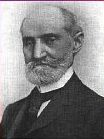Secale Cornutum Adapted to women of thin, scrawny, feeble, cachectic appearance; irritable, nervous temperament; pale, sunken countenance.
Very old, decrepit, feeble persons.
Women of very lax muscular fibre; everything seems loose and open; no action; vessels flabby; passive haemorrhages, copious flow of thin, black, watery blood; the corpuscles are destroyed.
Haemorrhagic diathesis; the slightest wound causes bleeding for weeks ( Lachesis, Phosphorus ); discharge of sanious liquid blood with a strong tendency to putrescence; tingling in the limbs and great debility, especially when the weakness is not caused by previous loss of fluids.
Leucorrhoea; green, brown, offensive.
Boils: small, painful with green contents, mature very slowly and heal in the same manner; very debilitating.
Face: pale, pinched, ashy, sunken, hippocratic; drawn, with sunken eyes; blue rings around eyes.
Unnatural, ravenous appetite; even with exhausting diarrhoea; craves acids, lemonade.
Secale Cornutum Diarrhoea: profuse, watery, putrid, brown; discharged with great force ([Gambogia], Crot. ); very exhausting; painless, involuntary; anus wide open ( Apis, Phosphorus ).
Enuresis: of old people; urine pale, watery, or bloody; urine suppressed.
Burning; in all parts of the body, as if sparks of fire were falling on the patient ( Arsenicum ).
Gangrene; dry, senile, < from external heat.
Large ecchymosis; blood blisters; often commencement of gangrene.
Collapse in cholera diseases; skin cold, yet cannot bear to be covered ( Camph. ).
The skin feels cold to the touch, yet the patient cannot tolerate covering; icy coldness of extremities.
Secale Cornutum Menses: irregular; copious, dark, fluid; with pressing, labor-like pains in abdomen; continuous discharge of watery blood until next period.
Threatened abortion especially at third month ( Sabina ); prolonged, bearing down, forcing pains.
During labor: pains irregular; too weak; feeble or ceasing; everything seems loose and open but no expulsive action; fainting.
After pains: too long; too painful; hour-glass contraction.
Suppression of milk; in thin, scrawny, exhausted women; the breasts do not properly fill.
Pulse small, rapid, contracted and often intermittent.
Secale Cornutum Relations. – Compare: Cinnamon in post-partum haemorrhage; it increases labor-pains, controls profuse or dangerous flooding, is always safe, while Ergot is always dangerous.
Similar: to, Arsenicum, but cold and heat are opposite.
Resembles Colchicum in cholera morbus.
Aggravation. – Heat; warmth from covering, of all affected parts; in all diseases worse from heat.
Amelioration. – In the cold air; getting cold; uncovering affected parts; rubbing.


